Honda Jazz vs Hyundai Bayon - Differences and prices compared
Compare performance (122 HP vs 90 HP), boot space and price (23100 £ vs 20100 £ ) at a glance. Find out which car is the better choice for you – Honda Jazz or Hyundai Bayon?
Costs and Efficiency:
Price and efficiency are often the first things buyers look at. Here it becomes clear which model has the long-term edge – whether at the pump, the plug, or in purchase price.
Hyundai Bayon has a slightly advantage in terms of price – it starts at 20100 £ , while the Honda Jazz costs 23100 £ . That’s a price difference of around 3043 £.
Fuel consumption also shows a difference: Honda Jazz manages with 4.50 L and is therefore clearly perceptible more efficient than the Hyundai Bayon with 5.80 L. The difference is about 1.30 L per 100 km.
Engine and Performance:
Power, torque and acceleration are the classic benchmarks for car enthusiasts – and here, some clear differences start to show.
When it comes to engine power, the Honda Jazz has a clearly perceptible edge – offering 122 HP compared to 90 HP. That’s roughly 32 HP more horsepower.
In acceleration from 0 to 100 km/h, the Honda Jazz is clearly perceptible quicker – completing the sprint in 9.40 s, while the Hyundai Bayon takes 11.90 s. That’s about 2.50 s faster.
There’s also a difference in torque: Honda Jazz pulls noticeable stronger with 253 Nm compared to 172 Nm. That’s about 81 Nm difference.
Space and Everyday Use:
Cabin size, boot volume and payload all play a role in everyday practicality. Here, comfort and flexibility make the difference.
Both vehicles offer seating for 5 people.
In curb weight, Hyundai Bayon is a bit lighter – 1175 kg compared to 1302 kg. The difference is around 127 kg.
In terms of boot space, the Hyundai Bayon offers clearly perceptible more room – 411 L compared to 304 L. That’s a difference of about 107 L.
When it comes to payload, Hyundai Bayon slightly takes the win – 460 kg compared to 388 kg. That’s a difference of about 72 kg.
Who wins the race in the data check?
The Honda Jazz holds a decisive overall lead in the objective data comparison.
This result only shows which model scores more points on paper – not which of the two cars feels right for you.
Costs and Consumption
View detailed analysis
Engine and Performance
View detailed analysis
Dimensions and Body
View detailed analysis
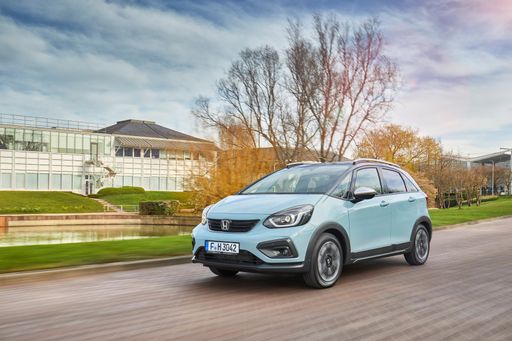
Honda Jazz
Honda Jazz
The Honda Jazz is a supremely practical small hatch that hides clever packaging and more usable space than it lets on, with friendly styling and an unfussy charm. It’s economical to run, easy to park and perfect for buyers who want reliable, versatile daily motoring without the hassle.
details
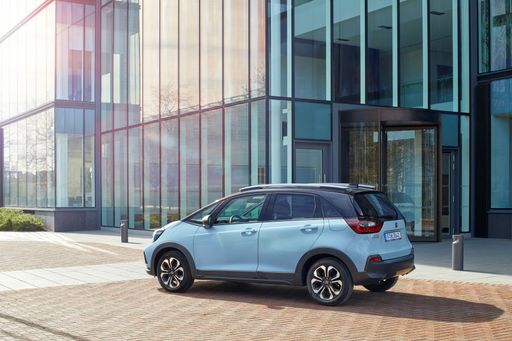
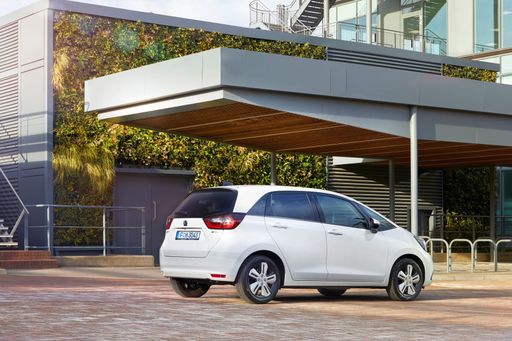
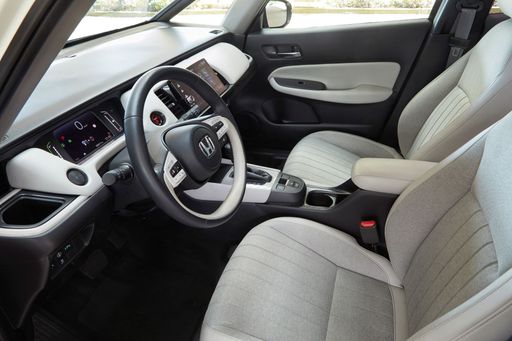
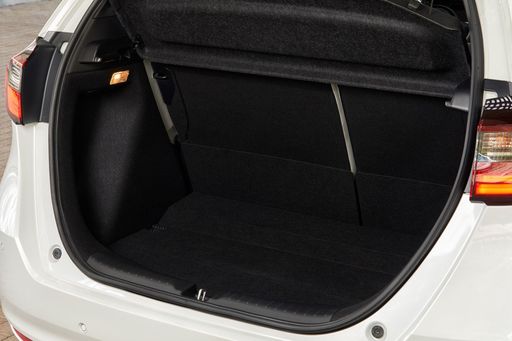
Hyundai Bayon
The Hyundai Bayon slips neatly between city runabout and small SUV, offering surprising practicality and a fresh, confident design that stands out in urban traffic. It's an easy buy for shoppers who want smart packaging, tidy handling and a dash of personality without fuss — a sensible little crossover that makes everyday driving a bit more enjoyable.
details




Costs and Consumption |
|
|---|---|
|
Price
23100 - 26700 £
|
Price
20100 - 25800 £
|
|
Consumption L/100km
4.5 - 4.8 L
|
Consumption L/100km
5.80 L
|
|
Consumption kWh/100km
-
|
Consumption kWh/100km
-
|
|
Electric Range
-
|
Electric Range
-
|
|
Battery Capacity
-
|
Battery Capacity
-
|
|
co2
102 - 108 g/km
|
co2
130 - 132 g/km
|
|
Fuel tank capacity
-
|
Fuel tank capacity
-
|
Dimensions and Body |
|
|---|---|
|
Body Type
Hatchback
|
Body Type
SUV
|
|
Seats
5
|
Seats
5
|
|
Doors
-
|
Doors
-
|
|
Curb weight
1302 - 1321 kg
|
Curb weight
1175 - 1200 kg
|
|
Trunk capacity
304 L
|
Trunk capacity
411 L
|
|
Length
-
|
Length
-
|
|
Width
-
|
Width
1775 mm
|
|
Height
-
|
Height
-
|
|
Max trunk capacity
-
|
Max trunk capacity
-
|
|
Payload
369 - 388 kg
|
Payload
450 - 460 kg
|
Engine and Performance |
|
|---|---|
|
Engine Type
Full Hybrid
|
Engine Type
Petrol
|
|
Transmission
Automatic
|
Transmission
Manuel, Automatic
|
|
Transmission Detail
CVT
|
Transmission Detail
Manual Gearbox, Dual-Clutch Automatic
|
|
Drive Type
Front-Wheel Drive
|
Drive Type
Front-Wheel Drive
|
|
Power HP
122 HP
|
Power HP
90 HP
|
|
Acceleration 0-100km/h
9.4 - 9.7 s
|
Acceleration 0-100km/h
11.9 - 13.3 s
|
|
Max Speed
-
|
Max Speed
-
|
|
Torque
253 Nm
|
Torque
172 Nm
|
|
Number of Cylinders
4
|
Number of Cylinders
3
|
|
Power kW
90 kW
|
Power kW
66 kW
|
|
Engine capacity
1498 cm3
|
Engine capacity
998 cm3
|
General |
|
|---|---|
|
Model Year
2025
|
Model Year
2025
|
|
CO2 Efficiency Class
C
|
CO2 Efficiency Class
D
|
|
Brand
Honda
|
Brand
Hyundai
|
Is the Honda Jazz offered with different drivetrains?
The Honda Jazz is offered with Front-Wheel Drive.




